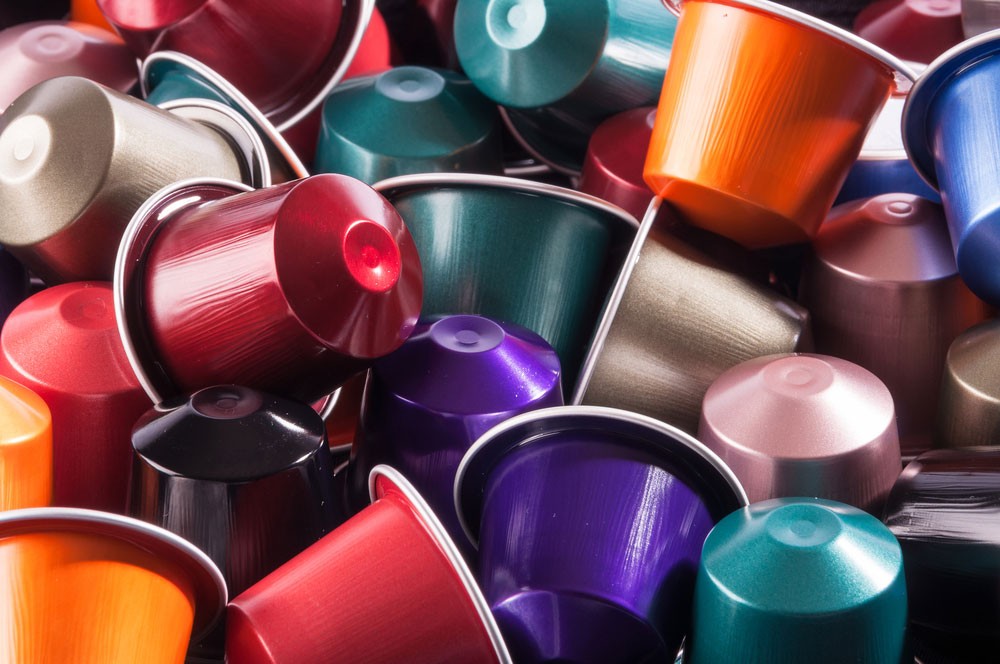A staggering 59 billion coffee capsules were produced in 2018. The problem is that over 95% of these are plastic or aluminum and that take 500 years to degrade. What can we do?
Coffee and the world: a love story. A staggering 2.25 billion cups of coffee are drunk every day globally and that is increasing every year. But could a new coffee trend be having a detrimental effect on the environment? Coffee capsules are becoming a popular alternative to home-brewed pots of coffee. The production of one-use products is becoming more popular to appeal to the modern consumer and convenience is the selling point. However, this convenience comes with big concerns for our environment.
Coffee is the most traded commodity in the world after crude oil and a staggering 59 billion coffee capsules were produced in 2018, to put that is perspective, that is 112,252 capsules being produced each minute. Unfortunately, over 95% of these are plastic or aluminum meaning that last year around 56 billion capsules went to landfills, capsules that take 500 years to degrade.
In 2016, Germany’s second largest city, Hamburg, banned coffee capsules from state-run buildings due to the effects on the environment. “The capsules can’t be recycled easily because they are often made of a mixture of plastic and aluminum,” stated Jan Dube, the spokesperson for the Hamburg Department of the Environment and Energy. “It’s 6g of coffee in 3g of packaging,” says Dube. “We in Hamburg thought that these shouldn’t be bought with taxpayers’ money.” Unfortunately, since then, it appears that no other city has followed suit in banning coffee capsules.
Coffee capsules are still the best performing category in the hot drinks world. However, after an overwhelming growth in sales from 2000 to 2016 that growth has slowed down. It’s expected to decrease from now on, and hopefully, the use of non-biodegradable capsules will cease in the near future.
What can we do about it?
At a minimum, check recycling options in your location. In some countries in the region, including Lebanon and the UAE, Nespresso runs recycling programs
If you have a coffee machine that uses capsules and you want to continue using this guilt-free, you can buy bio-degradable coffee capsules online that are Nespresso compatible and made from primarily plant-based fibers.
Drink less coffee. The words that any coffee-addict hates to hear, but drinking less coffee means less capsules being thrown into landfills. A reduced intake of coffee is also likely to help you sleep better and can have other health benefits.
Brew your coffee the natural old- fashioned way and save money to boot! Using coffee capsules costs up to double the price of fresh-brewed coffee and up to 10 times that of instant coffee.
There are many different coffee makers available, whether a drip coffee maker, a French press, or a simply pour over filter. Some have eye catching designs and can start a conversation.
Opt for tea! Tea leaves and tea bags are fully compostable and are a less-caffeinated alternative to coffee. Here at Soha Wellness, we love tea and the health benefits that it can provide.

